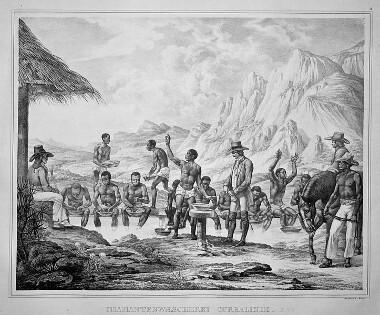Throughout our lives, we have a routine that organizes our time and determines the activities we carry out throughout a day. For children, especially in the West, school appears from an early age as one of the spaces that guide their daily actions. Being so used to this kind of situation, we can imagine that many children see their presence at school as something completely natural, done that way because it has always been that way.
However, we must understand that school is not a natural space – the second place occupied by the child after home. After all, there was a long process of transformations, choices and ideas responsible for the emergence of the school. Having made this statement, some may even ask: “When and how were schools created?”. To this question, we must construct a longer answer, which encompasses a history that spans different peoples and different notions about education and the needs of a child.
In Antiquity, early childhood education was a present concern among the various civilizations that established themselves. In different cases, we observed that the education of minors took place within the home. Values and knowledge were directly transmitted from parents to children. At that time, we realized that there was a universe of knowledge considered important for children and, at the same time, a division of what boys and girls should learn for their lives.
With the emergence of more complex societies, endowed with political institutions and sophisticated economic practices, the notion that family education was sufficient loses ground. In this context, we notice the emergence of the first teachers, professionals who specialized in passing on knowledge. Often, these first teachers were exclusively hired by families that had better conditions or they organized their classes in improvised spaces, receiving an amount from each member from the team.
Already at that time, we realized that education and access to teachers were strictly linked to the economic condition of a family. In Ancient Greece, education was seen as an activity for the few, for those who could consume their free time with knowledge and they did not have the need to work to ensure their own survival. Thus, we realized that education was a privilege guaranteed to a minimal portion of the population.
In the medieval period, the process of ruralization of European society established a new framework for schools. Teaching was shown to be restricted to a minimal population, generally linked to the recruitment of religious leaders from the rising Christian Church. Since the conversion process was an arduous task, church members went through an orderly study routine so that they could then effectively master their understanding of the biblical text. Meanwhile, communities in the manors rarely had the opportunity to educate themselves.
Even in medieval times, we realized that this situation changed with the rebirth of urban centers and with the re-articulation of commercial activities. The need for control and organization of businesses and the administration of cities required the training of qualified people for such posts. Thus, educational institutions began to open up to the lay public, but with a strong presence of Church members who taught at such institutions. Even at that time, knowledge was still restricted to a small portion of the population.
Entering the Modern Age, we realized that the development of these institutions opened doors for new reflections on how schools should work and which public they were aimed at. The organization of curricula, the division of teaching phases and the subjects to be studied began to be discussed. At the same time, the differentiation between male and female teaching also emerged at that time. Until then, in most cases, the school environment was restricted to male figures in European society.
In the 18th century, the rise of the Enlightenment movement placed the development of a reason-oriented society as an indispensable necessity. Guided by principles of equality and freedom, the discourse of the Enlightenment scholars placed the school environment as an institution of great importance. In the following century, we have the expansion of educational institutions in Europe, then committed to a education that was accessible to different parts of society, regardless of their social or economic.
In the last century, this process of expansion of schools surpassed the limits of the European continent. Countries marked by colonization experienced the emergence of schools. Despite the apparent benefits of such a transformation, we note that these institutions could not be a simple copy of the European model. It was necessary to rethink the place of education in these other societies, in light of their demands, problems and contradictions.
In recent decades, the advance of technology and the accelerated growth of the means of communication encourage us to seriously rethink how schools should organize themselves. Access to information and knowledge is no longer a problem to be solved exclusively by the school environment. More than a simple transmission, the 21st century school must move towards the construction of knowledge autonomous, in which the individual is able to criticize and organize knowledge that is relevant to yourself.
By Rainer Gonçalves Sousa
Kids School Collaborator
Graduated in History from the Federal University of Goiás - UFG
Master in History from the Federal University of Goiás - UFG

